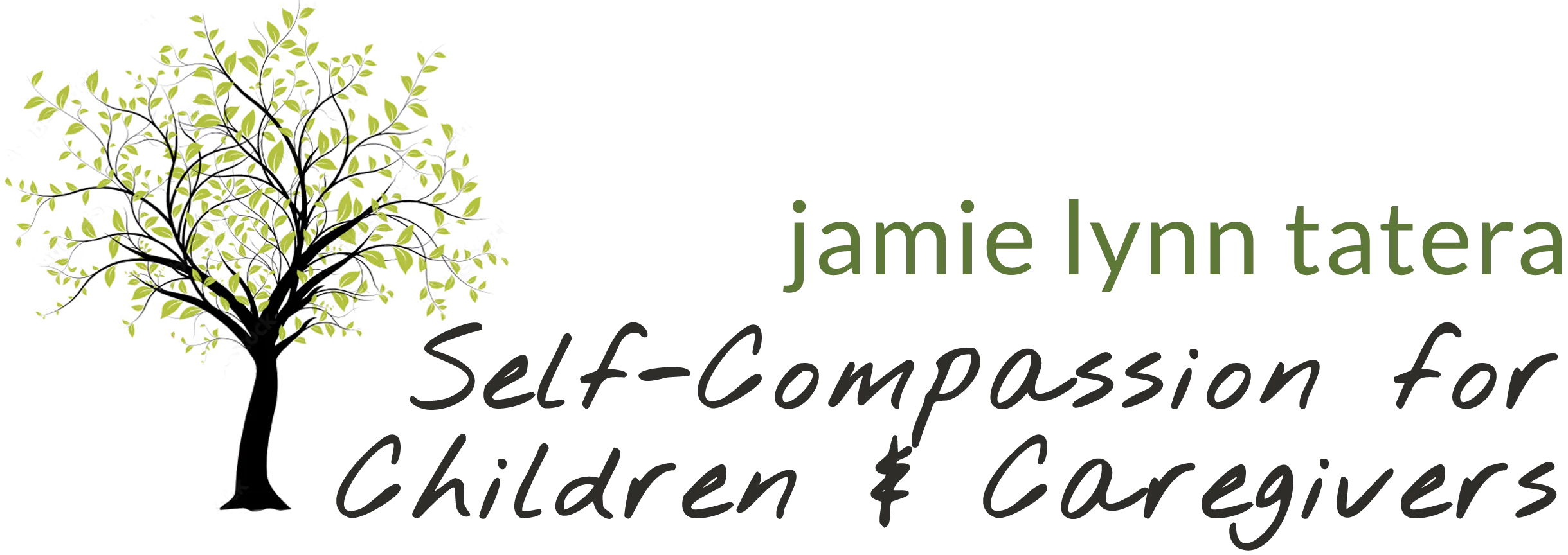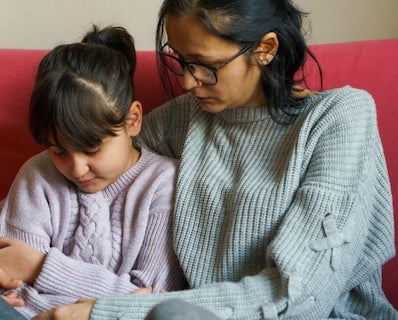What is Self-Compassion for Children?
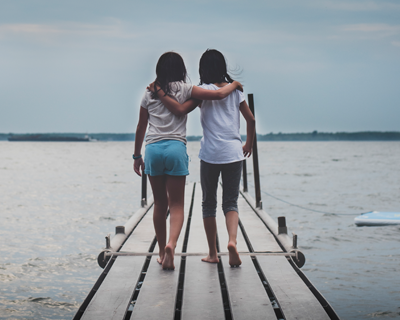 Life can be hard! As children go through life, they will fall short, kids will sometimes be unkind to them, they’ll face disappointments, challenges and setbacks. And we want them to have a friend—a strong and tender friend—that is always on their side.
Life can be hard! As children go through life, they will fall short, kids will sometimes be unkind to them, they’ll face disappointments, challenges and setbacks. And we want them to have a friend—a strong and tender friend—that is always on their side.
To have self-compassion means to treat yourself as you would treat a dear friend. Think about your most ideal friend. What would they be like? They’d be there for you when you fell short. They’d give you a hug. They’d say, “I’m so sorry that happened!” They would encourage you to pursue your dreams…to be the best version of yourself.
They might not always tell you what you wanted to hear. But they’d tell you what you needed to hear to grow, feel supported and unconditionally accepted and loved. That’s what having self-compassion means. And that’s what we want to give our kids.
Click the plus signs below to learn more about self-compassion for children.
What Are the Three Elements of Self-Compassion?
The three elements of self-compassion are:
MINDFULNESS | COMMON HUMANITY | SELF-KINDNESS
The first element, MINDFULNESS, simply means that we are able to acknowledge when we are having a difficult moment. How often in daily life do we either zoom past our difficult moments or catastrophize our difficult moments without really noticing that we are struggling? The mindfulness component of self-compassion helps us to see our struggle for what it is, and paves the way for meeting our struggle with kindness.
The second component of SELF-COMPASSION is common humanity. Oftentimes when we struggle, we tell ourselves the story that we shouldn’t be struggling, or that if we did everything right, this wouldn’t have happened. The truth is that experiencing adversity and difficult emotions is a part of life for everyone. And it is a lot more self-compassionate when we are able to tell ourselves that other human beings might feel like we do too in situations, and that we are not alone in having struggles, imperfections, and setbacks. Common humanity feels like kindness.
The last component of self-compassion is SELF-KINDESS. Self-kindness can show up in so many different ways. We might give ourselves a loving touch…a hug; we might decide that we need a resource and call a friend or go for a walk. We could give ourselves kind and tender words like, “I’m so sorry that this is happening. It’s going to be okay.” Or we might offer ourselves encouragement, reminding ourselves that we can do hard things and persevere in the face of challenges.
The quintessential self-compassion question is, “What do I need?” Compassionately considering and responding to this question will lead us further down the path of self-compassion.
How Do Children Learn Self-Compassion?
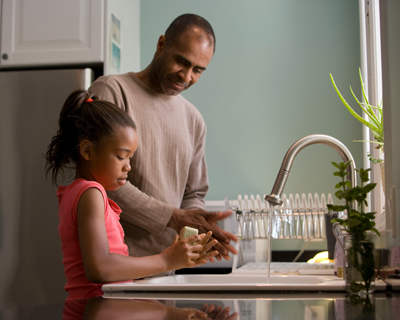 The answer to this question begins with the grown-ups in children’s lives. First and foremost, how do the adults in children’s lives treat them? And second, what are the adults in their life modeling?
The answer to this question begins with the grown-ups in children’s lives. First and foremost, how do the adults in children’s lives treat them? And second, what are the adults in their life modeling?
When a child grows up with a caregiver who nurtures them when things go wrong and can lovingly help them to see the ways that they need to grow, this child is much more likely to develop an internal voice of self-compassion. When a child has a caregiver that understands them and is consistently on their team, children receive the foundation for attuning to and encouraging themselves.
Also important for kids is having a caregiver that models self-compassion. Kids observe and internalize the ways that their parents and caregivers treat themselves when they fall short. If their grown-up says, “Wow! I fell short. This is really hard,” and then models being kind to themselves—models learning from their experience without beating themselves up—this child is likely to grow up knowing the voice of self-compassion.
So, receiving compassion—both tender and fierce—and having self-compassion modeled are two strong pathways to help kids develop a foundation of self-compassion.
Children can also benefit from being explicitly taught how to give themselves compassion. How can we do this as caregivers?
First, caregivers of children need to learn self-compassion! You can take an adult self-compassion training, read a self-compassion book, watch self-compassion videos, and do self-compassion practices and meditations. If you take an adult self-compassion training, you will learn strategies that you can share with your child to help them practice self-compassion (such as kind touch, kind words, or asking, “What would you say to your friend?”). You can then bring these ideas and practices into your daily interactions with your child.
You can also learn self-compassion along with your child. You and your child could take a parent-child self-compassion class together. The benefit of taking a class with your child is that your child will be able to learn about self-compassion from someone besides you (sometimes this can be really helpful). You can also watch self-compassion videos together, read books with self-compassionate characters, and make practicing self-compassion a joint activity.
In some locations, the Self-Compassion for Children and Caregivers program is taught in-person to groups of children-only. There are also schools that offer Self-Compassion for Kids Lessons as part of their curriculum. These are great options if they are available in your area, but they are not a replacement for you learning self-compassion too and helping your child to practice at home.
Once you (the “grown-up”) have a strong self-compassion practice, model self-compassion, and offer your child the elements of self-compassion through your compassionate presence, you can begin to invite your child to give compassion to themselves in those tender moments when they need it most.
Note: To view 100+ studies on the role of “family, parenting, and attachment” on the development of self-compassion visit Kristin Neff’s research page.
How Can Self-Compassion Help Children and Caregivers?
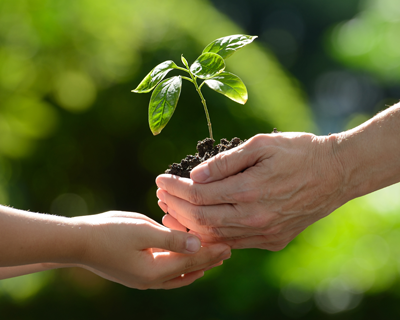 The benefits of self-compassion are too numerous to count! Kristin Neff—self-compassion researcher and co-creator of Mindful Self-Compassion training—has a section on her website dedicated to research with over 1000 publications relating to the benefits of self-compassion.
The benefits of self-compassion are too numerous to count! Kristin Neff—self-compassion researcher and co-creator of Mindful Self-Compassion training—has a section on her website dedicated to research with over 1000 publications relating to the benefits of self-compassion.
Self-compassion can help children and caregivers cope effectively with adversity and experience more satisfaction in their lives. Research on Jamie Lynn’s parent-child self-compassion training (currently in review) showed “significant” improvements in parents’ self-compassion levels, parenting stress, and mindful parenting as well as decreases in children’s depression.
In my family, self-compassion is the gift that keeps on giving. Self-compassion has helped my older daughter cope effectively with a learning disability and navigate the social challenges of middle school. Self-compassion has helped my younger daughter learn to acknowledge the voice of her inner critic (she has a strong one!), soothe herself when things go wrong, and learn to accept and encourage herself with kindness. Self-compassion has helped me to cope with my parenting imperfections—it helps me do the continual dance between tender self-acceptance and fiercely encouraging myself to continue to learn and grow.
Situations in which you and/or your child may find self-compassion helpful include: when you fall short, when you encounter challenges, when you are worried about someone you care about, when you want to encourage yourself to reach for daunting and important goals, when you are feeling anxious, depressed, ashamed, or dealing with other challenging emotions. The list goes on and on.
Controlled, randomized studies on Mindful Self-Compassion training participants have shown significant increases in self-compassion, compassion for others, mindfulness and life satisfaction as well as decreased depression, anxiety, and stress after Mindful Self-Compassion training. Participants who practiced more in their daily lives experienced more benefits. Read the full-text article.
Sometimes hearing the stories of others can help more than reading a description of benefits. Click here to hear what adults, teens and children have to say about how self-compassion training has changed their lives.
